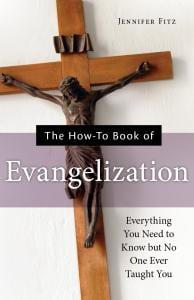[Quick update: Fr. Marcin died this morning.]
I’ve had this weird on-and-off cold over the past week. Sore throat and headache Tuesday, perfectly fine Wednesday and Thursday. Slight cough Friday morning, then fine all day. Fine Saturday. Woke up today with a definite sore throat and runny nose. So . . . any other year, it would be no big deal. Not even on the radar.
Meanwhile, an interesting bit of science-ness via Trevor Bedford confirms what many of us have suspected, that in the absence of widespread testing (S. Korea being a counter-example), there’s a significant delay between when the virus first begins circulating in a community and when it is finally recognized in the form of serious cases that get correctly diagnosed. Which causes one to think: Is my child’s runny nose just another round of the sniffles, or are these SNIFFLES OF DEATH?
And thus a surreal moment for my youngest child, when I told her that no, I would not be allowing her to pack into the pews with all the old ladies at Mass this morning, but yes, she may still go mountain biking with her father this afternoon. Unheard of happenings in this house.
My logic? The trees will be fine, whereas we do not need the backbone of the American church getting infected with who-knows-what. Think about this: If you unwittingly kill off scores of old church ladies . . . Who’s gonna do the funeral meals? Who’s gonna get those altar linens CLEAN? Who’s gonna torment Father while the rest of us are distracted with pre-retirement busyness and can only whine and scold on evenings and weekends?
***
Even in a “young” parish, a disproportionate share of the load, lay and priestly, falls on older shoulders. When we received the news this morning concerning Fr. Marcin Zahuta (our son attends his parish), SuperHusband asked, stunned, “But isn’t he young?” Weeellll, dear . . . I don’t know his age exactly, but he’s at least as old as us. Turns out if you have adult children, then you might not be so young anymore. Fr. Marcin was already well-established as “that young priest” who wasn’t so so young way back when the boy was attending Catholic summer camp in elementary school and Father was the chaplain.
Thus my thesis: If you love the Church at all, do what you can to slow the inevitable so you don’t overwhelm your local hospital. We have an incredible amount of medical technology at our disposal to deal with pulmonary diseases, we have skilled healthcare workers who excel at helping marginal lungs hold it together, but we don’t have magic. We can’t snap our fingers and quadruple our capacity for treating highly infectious patients with extreme respiratory distress.
Hence the mind game. Am I being ridiculously paranoid, or am I just doing my civic duty? I don’t know. We’re muddling through, refraining from blatant acts of infectiousness like sneezing on elderly people but not going into complete isolation over the sniffles either. Maybe we’re not being careful enough. You don’t know.
***
Meanwhile, my brother called the other day to ask about bringing his family to visit over spring break. (Yes! Please!) They’d be flying, which is a germy proposition regardless of hot new respiratory viruses, but I don’t think for healthy, low-risk travelers the threat of infection is the chief concern. The big question mark is whether you’ll accidentally end up quarantined.
Worse things could happen than getting home from a trip only to be told you’re now on forced-staycation because you traveled through a freshly-declared epidemic zone, and of course you’ve got no milk in the fridge because you were just out of town for a week. The more serious question he needs to answer is . . . what if my town is that place, and he’s here when the airlines quit servicing our nearby airports, and neighboring states shut their overland borders, and he gets stuck with us for a month?
He’s a brave a guy, but how brave?
If this thing goes pandemic the just the right way, we could end up with some genius help finishing our construction project.

Our Daily Photo Penance: Evidence my office needs drywall, plumbing, HVAC, and oh, and um, lots to be done outside with dirt and pavers. Family reunion time for sure.
Related: Darwin Catholic has a superb reflection, “Life in Uncertain Times.” Worth your minutes.











